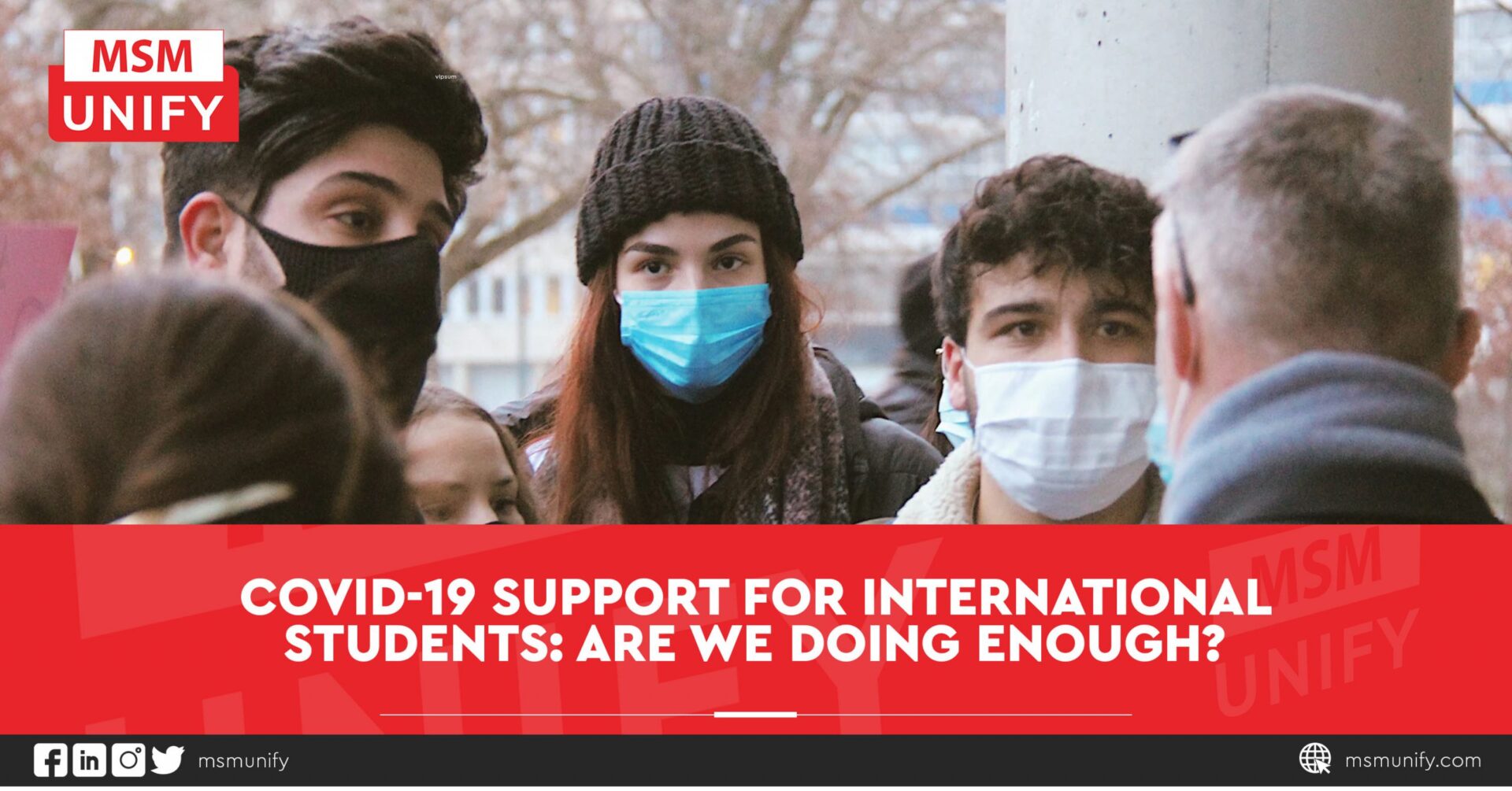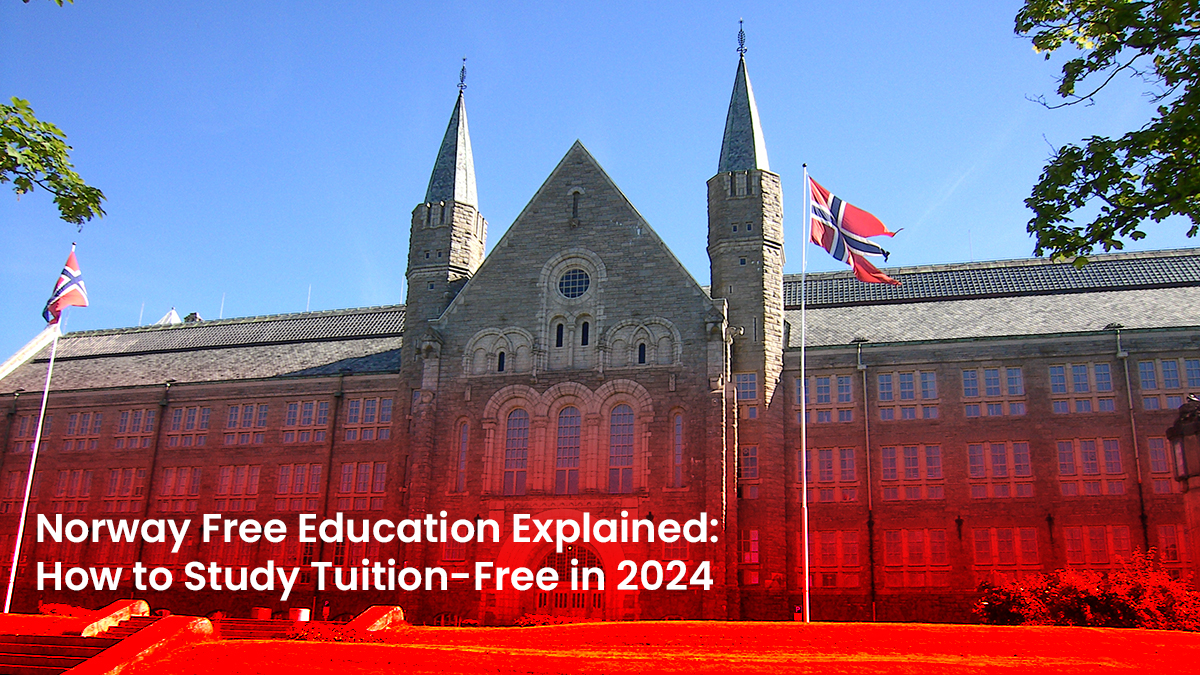COVID-19 has extended its stay globally, significantly impacting international student mobility for more than a year. Some regions still follow strict lockdowns, while others have laid down plans to welcome more international students once they have achieved their vaccination targets.
In the United Arab Emirates (UAE), vaccination rates have reached 98 percent, an impressive achievement that signals the region’s readiness for the new normal. In other countries, travel restrictions have started to ease, allowing foreign nationals to cross the borders with several requirements aside from being fully vaccinated.
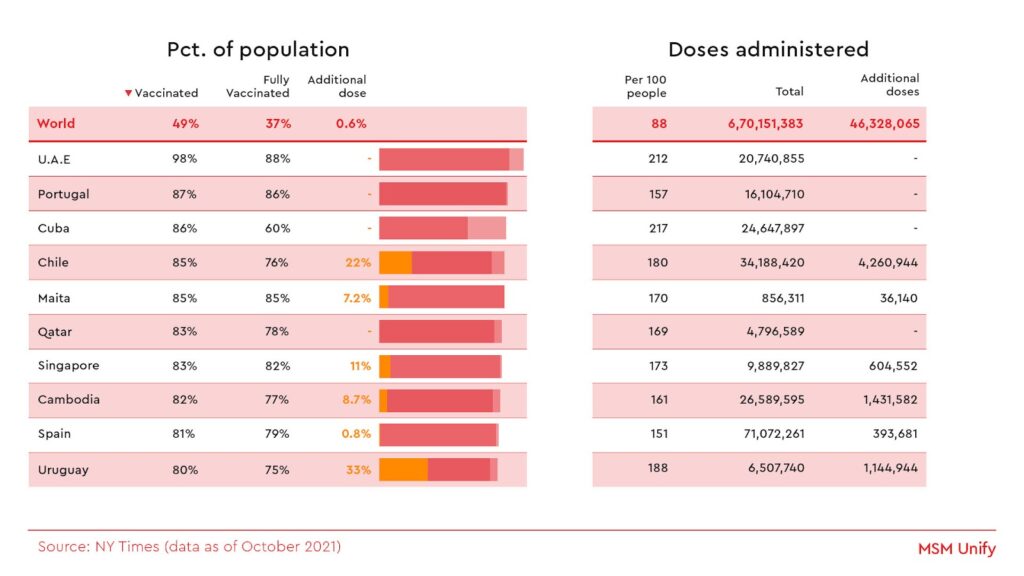
Key Takeaways:
- COVID-19 has extended its stay, causing international students’ immobility.
- Plans for face-to-face learning for international students are still undergoing review.
- International students suffer from economic and emotional stress due to the pandemic.
- COVID-19 support is highly encouraged from higher education institutions.
International Student Support During COVID-19
In Canada, international students coming into the country to proceed with their study programs may enter if they have a valid study permit or a letter of introduction showing approval for a permit. They must also attend a designated learning institution (DLI) with a province-approved COVID-19 readiness plan. (2) Even if the student is fully vaccinated, a 14-day quarantine plan is still in place to maintain the health and safety of the receiving province.
In Australia, international students are set to return only after Australian citizens and permanent residents by November 2021. This would all depend if the COVID-19 vaccination rate will hit 80 percent in the different states. (3) The same goes for the United States – reopening of borders to fully vaccinated international travelers will start on Nov. 8, 2021. (4)
In most higher education institutions in the United States such as the University of Central Florida, international student advisers do regular checks on students living off-campus during the pandemic. (5) They are provided with COVID-19 updates so as to make them feel at ease. Some international students also receive phone calls from their advisers, which they appreciate as these are more personal than emails.
In terms of accommodations, when the pandemic hit, some institutions opened their campuses for international students who were stuck and could not go home. Some set up housing resource websites so that international students can find rentals and homes they can stay in during the pandemic.
Financial fallout was also one of the top challenges for international students. Some schools raised private funds to help students get by with unexpected expenses while in their host country.
These are just some of the problems that international students experienced firsthand during the pandemic and examples of support given to them. While these measures may have helped students with some of their concerns, these may not be enough. Education institutions and agents must work together more diligently to assess, meet, and anticipate all the needs of as many international students as possible.
How International Students Are Coping
Being stuck at home for a long time and relying on virtual learning may not suit most international students.
In Canada, Athabasca University cancelled all clinical practicums for the nursing students. Even if COVID-19 cases in March 2020 in the region were less than 250, the institution decided to prioritize the health and safety of the students over the strain on learning.
If students were not removed from the clinical practicums, there is a high risk of contracting the virus and students may ultimately face financial burden. That is why a shift to online learning was suggested to keep the students safe. However, online classes are difficult without hands-on learning, which has made skill-building very challenging for nursing students. (6)
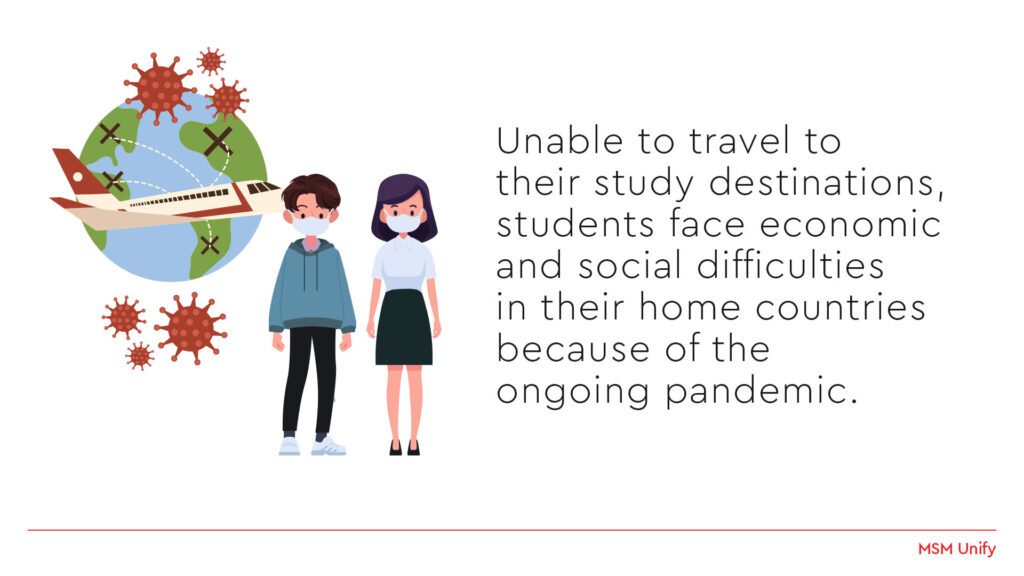
Routine visa processing being canceled and a series of ever-changing travel restrictions weigh international students down. These students seek international education to enhance employability, gain global skills and knowledge, and develop themselves to become the professionals they have always wanted to be.
These goals are what keep international students resilient and hopeful that amid the pandemic, they may be able to pursue and finish their studies at their overseas universities and colleges.
For added support, international students in the University of Waterloo join an online peer support group to help them feel at home and settle in Canada. There are also community activities that enable international students to create a support network, which enhances their social skills and lets them learn about different cultures. (8)
In Australia, international students may join an online program, such as the Sydney Study Connect, that gives them access to resources for their academic programs. They can also make social connections with other students and join support groups that help them feel comfortable in their new home. (9)
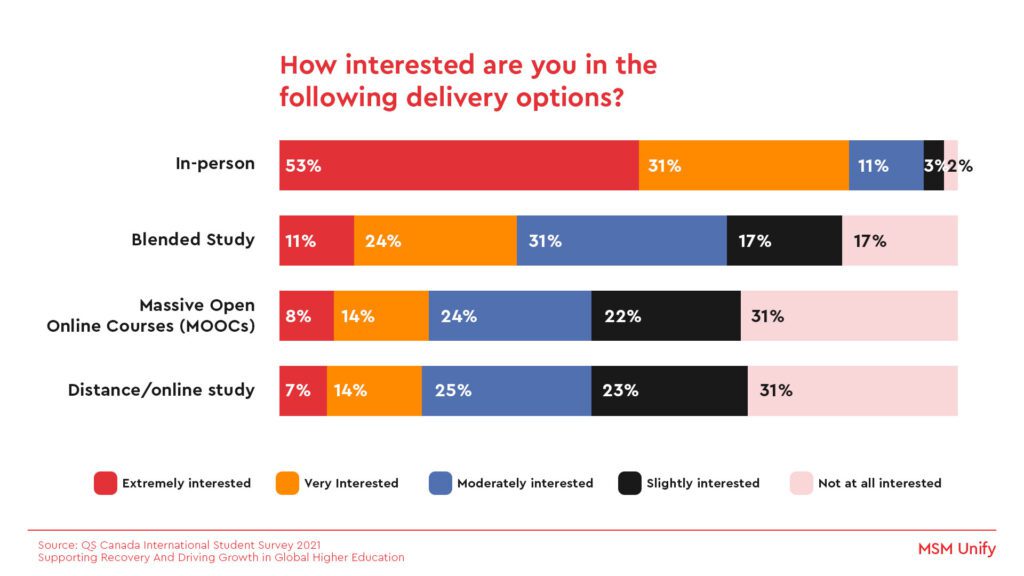
The Need for COVID-19 Support
The 2021 QS International Student Survey suggests that incoming international students must have personalized support services. (10) These should focus on mental health and counseling, and provide 24-hour helplines to connect students to health care professionals.
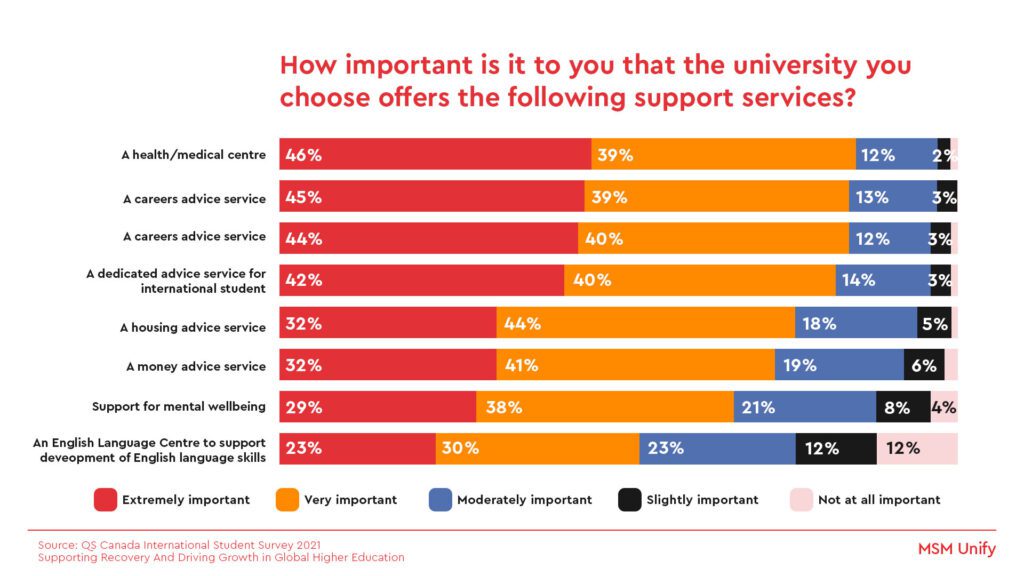
With the stress caused by the ongoing pandemic, higher education institutions (HEIs) must also offer assistance with housing, financial, and employment services. The survey report also suggests that HEIs give international students perks and discounts on goods needed for daily living.
One of the top things future international students would want is advice from current students in the host country. Buddy programs may be developed as these are on-ground and give international students a sense of belongingness. A buddy would provide insights, information, and realistic advice that would help international students move forward. These may include quarantine and vaccination protocols, accommodations, scholarships, and work placements via videoconferencing or other online platforms.
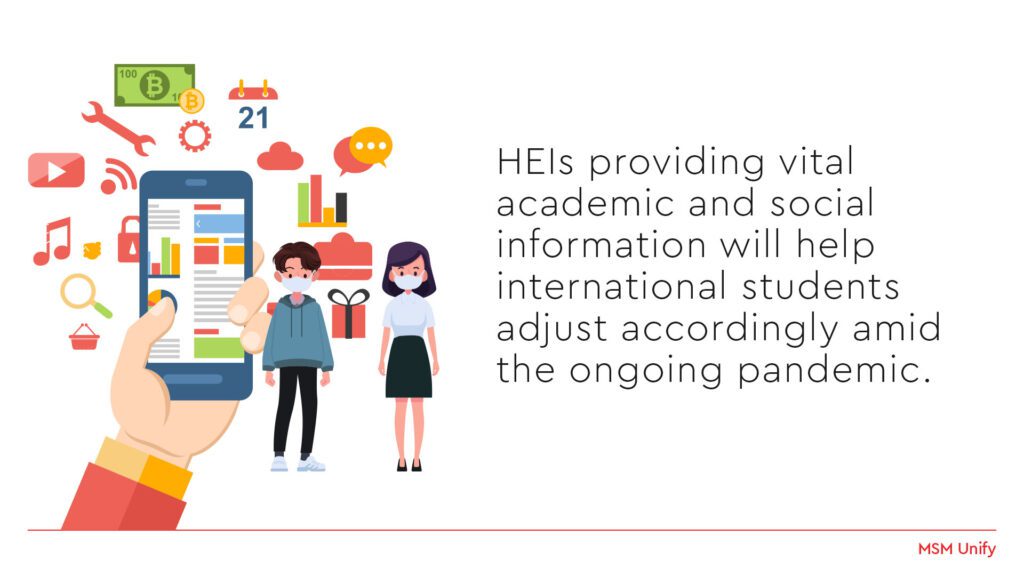
Through this support, international students will gain confidence as they feel that their institution cares about their total well-being. The pandemic has created uncertain outcomes for more than a year, but with sufficient support and assistance, incoming international students will have at least a sense of assurance that all will be well.
Venturing out to a new country is not easy, especially with the COVID-19 pandemic. Challenges and issues faced by international students will be significantly reduced if personalized communication between education providers and students is established. Such strategies to support students will create a positive impact on the international education industry as well, as students are more likely to put their trust in institutions and organizations that they know truly care for them.
MSM Unify is your one-stop source platform that connects students, higher education institutions, and agents worldwide. Sign up now to get the latest updates and information on international education.

